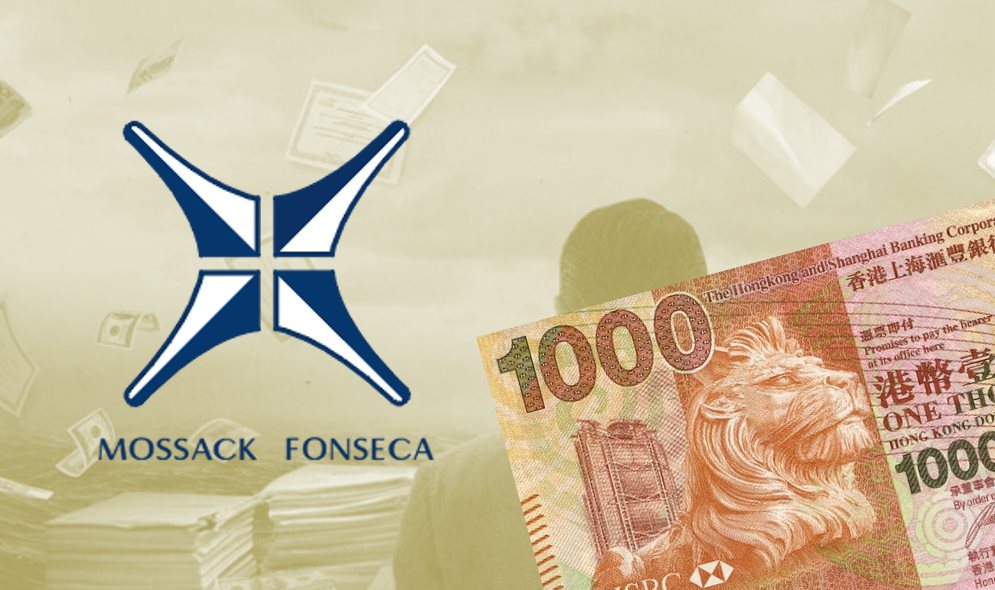Hong Kong government officials were lining up on Tuesday to insist that the city is not a major centre for money laundering. Their protests are not entirely convincing.
Hong Kong may not be the conduit of choice for drug cartels or terrorist organisations looking to cleanse their dirty cash. But it certainly is the favourite channel for mainland Chinese who want to ship funds offshore in defiance of Beijing’s controls on cross-border capital flows, and place their cash beyond the reach China’s tax and corruption inspectors. Exactly how much money Hong Kong handles in this fashion is impossible to say, but at a conservative estimate the city processes hundreds of billions of Hong Kong dollars in illicit funds every year.

Hong Kong’s role in this business has been highlighted by the release at the weekend of the Panama Papers, documents leaked from Panamanian legal firm Mossack Fonseca showing that more than 2,000 Hong Kong-based legal and financial firms have set up offshore shell companies on behalf of their clients—clients who would rather their assets and activities remain hidden.
Such revelations are nothing new. The International Consortium of Investigative Journalists, the outfit which obtained the Panama Papers, published a story two years ago alleging that close relatives of many of China’s senior leaders owned companies registered in offshore tax havens including the British Virgin Islands.
Hidden from view
Their reasons for setting up such shell companies are threefold. First, they want to avoid paying mainland taxes on their assets. Second, they want to hide their wealth from corruption inspectors, especially if they have made it by exploiting the influence of their powerful relations. And third, they want to disguise the origin of their funds in order to take advantage of the generous tax breaks China offers to foreign investors.
Foreign-owned capital entering China is exempt from the capital gains and income taxes levied on Chinese capital. Moreover, local Chinese governments offer foreign investors cheap land, discounted energy bills, and advantageous tax rates. Often, foreign-owned companies in China pay value-added tax at just half the rate charged to local companies.

As a result, Chinese businesses have a powerful incentive to get their domestic capital spending classed as foreign investment. Hong Kong makes that easy. To ship money offshore, typically, mainland trading companies either under-price the goods they export through Hong Kong, or over-price those they import through the city. Either way, they accumulate funds in Hong Kong, usually in the name of a shell company domiciled in the British Virgin Islands or another tax-efficient offshore jurisdiction with convenient commercial secrecy laws.
Alternatively, a Chinese entrepreneur may set up an offshore shell company to hold the stake he owns in his mainland business. He then floats the business on the Hong Kong stock exchange, booking the proceeds of the offering in an offshore tax haven. Either way, the cash can then be routed back into China—either directly or through Hong Kong—labelled as foreign investment, which allows the beneficial owner to collect powerful tax benefits.
The amounts involved are enormous. In 2014, the latest year for which the Hong Kong government has published data, the city channelled direct investments worth HK$637.9 billion into the mainland. Most of that money came not from Hong Kong investors, but from anonymous shell companies in offshore financial centres. By far the biggest source was the BVI, which according to government figures channelled HK$476.7 billion into Hong Kong.
So when Hong Kong government officials insist that the city is not a money laundering centre, they are being something less than wholly honest. They know full well that those hundreds of billions of dollars consist largely of disguised mainland funds which only acquired their glowing sheen of legitimacy by being round-tripped through the combined laundry of secretive offshore financial centres and Hong Kong’s financial system.
